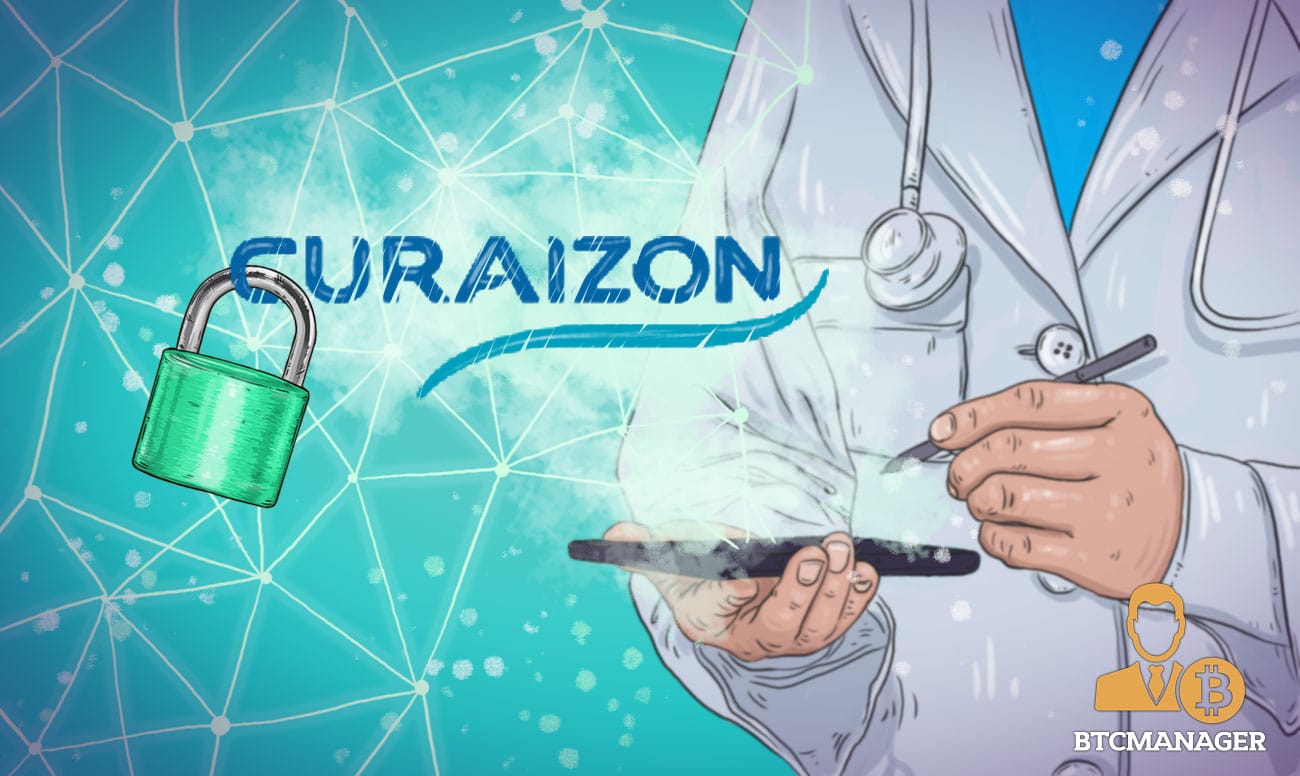Curaizon Restoring Faith in the Security of Patient Data

After a string of high-profile data hacks in the UK, patients’ trust that their medical records are secure has been further undermined by disclosures in a court case that medical data had been obtained under false pretenses for a British tabloid. In other instances, the anonymity of medical data has been jeopardized, while in some jurisdictions privacy rights conflict with general research needs. Curaizon, a pioneer of medicine adherence technologies, offers a way to protect the confidentiality of data and at the same time use proprietary technologies operating on blockchain for the safe sharing of big data for the benefit of patients, hospitals, and medical researchers.
A particularly severe cyber-attack in May 2017 immobilized parts of the UK’s National Health Service, highlighting the frailties of its IT systems and the risks for medical data. Now a new court case has shown that hospital records of celebrities appear to have been targeted by tabloids. Reporting on the case, independent media platform Byline Investigations discloses that an unscrupulous freelancer for The Sun, a UK tabloid owned by Rupert Murdoch, allegedly posed as a psychiatrist or offered cash payments to obtain the medical records of film and pop stars.
According to the book by Adam Tanner “Our Bodies, Our Data. How Companies Make Billions Selling our Medical Records,” the general public is also at risk even when data seem to have been anonymized. Patients share personal information with doctors in the mistaken belief that the data will not be passed on to other parties. However, in many instances, information that has allegedly been anonymized is then sold on, often to the highest bidder. Owing to advances in technology, data miners or other brokers then compile detailed files on individuals by cross-referencing information from different sources, such as data from various fitness monitors and information online. Meanwhile, a recent article in the Journal of Law and the Biosciences comments on the little-known fact that U.S. healthcare providers may provide a patient’s genome to anyone requesting this information without the patient’s consent.
Against this background, it is no wonder that the general public is wary about sharing information even when such reticence could have an adverse impact on their health, all the more so when drug non-adherence levels are so high (reaching 50 percent amongst adults). This is where Curaizon can help, driven as it is by the underlying belief that patients should own their data and be duly notified in the event of potential use and asked to provide their consent. The company also believes that treatment should focus more on individual needs enabled by incisive analysis of big data using the innovative artificial intelligence techniques available today.
Curaizon’s CuraServe technology reduces drug non-adherence, lowers healthcare costs and also promotes medical research. It consists of three key areas; CuraServe, CuraView, and CuraData. CuraServe communicates with patients, providing non-intrusive reminders to take medication, and offers a real-time view into patient behavior. CuraView integrates with the legacy systems of healthcare providers and ensures real-time feedback to electronic medical records. All the data collected through CuraServe are stored in CuraData, representing the unique and anonymous data of patients and consisting only of demographic and adherence data. The system merges the data collected by Curaizon’s real-time adherence technologies with patient data. The security of the data is ensured through storage off-chain in an encrypted cloud in the required geographic domain, with blockchain storing pointers and rules on access and use.
Curaizon CEO Nicholas Rumble explains how the company’s big data analysis can benefit everyone:
“In addition to enhancing research into treatments, big data analysis improves operational logistics. Doctors can use our AI technology to care for patients more effectively. As technology enables healthcare providers to monitor patients and their conditions in real time, it is highly likely that patients’ health can be more effectively monitored, reducing the likelihood that they are readmitted to the hospital. Doctors and nurses can monitor patients’ status through smartphone apps to gain a more complete picture of overall health.”
Researchers, academics, and pharmaceutical companies can also access patients’ anonymized big data via CuraData’s unique architecture, offering increased security thanks to blockchain technology, encryption, and cloud services. As a result, patients and healthcare providers are not the only beneficiaries of secure medical data.
Disclaimer: This is paid content. BTCManager does not endorse any content or product on this page. While we aim at providing you all important information that we could obtain, readers should do their own research before taking any actions related to the company and carry full responsibility for their decisions, nor this article can be considered as investment advice. BTCManager and its employes are not responsible, directly or indirectly, for any damage or loss caused or alleged to be caused by or in connection with the use of or reliance on any content, goods or services mentioned in the press release.












